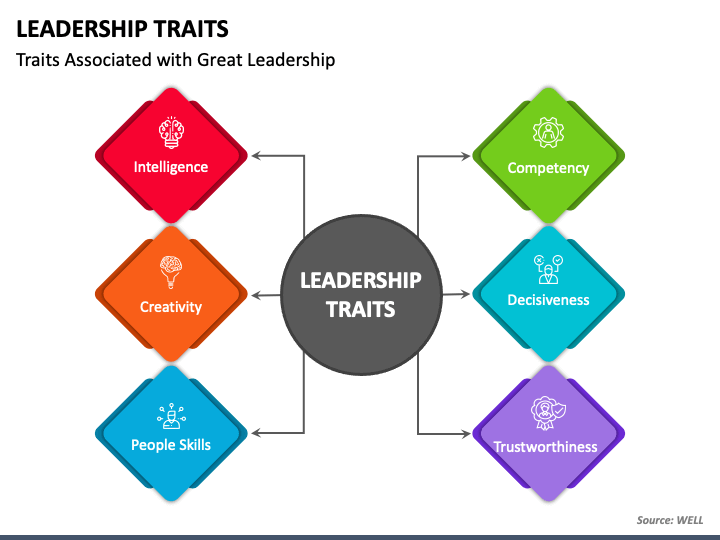The Essential Leadership Traits of Effective Leaders in a VUCA World

Table Of Content
- Understanding VUCA
- Leadership Traits in a VUCA World
- Key Leadership Qualities in a VUCA World
- Integrating Leadership Traits and Qualities
The VUCA concept, born in a military context, is now a staple in business leadership, emphasizing the need for new management traits beyond traditional approaches. Thus, Leadership in a VUCA world requires agility, foresight, and a keen understanding of complex dynamics to navigate the unpredictable.
This blog will outline the essential leadership traits and leadership qualities vital for success in such an environment, moving from simply managing to truly leading in times of constant change.
Understanding VUCA
Before delving into the traits effective leaders need to develop, it is crucial to understand what each element of VUCA entails and the unique challenges they present:
- The rate of change in a market, industry, or the entire planet is referred to as volatility. It can have an undetermined duration and is characterised by unexpected or unstable behaviour, but it’s often not difficult to grasp because information about it is widely available.
- Uncertainty implies a lack of predictability and the prospects for surprise, emphasizing the need for information and the ability to interpret it correctly.
- Complexity involves multiple key decision factors, with the potential to cause confusion stemming from the interconnectedness of multiple variables.
- Ambiguity is a metaphor for cause-and-effect misunderstanding, the fuzziness of reality, and the possibility of misinterpretations.
Leadership in such a world requires not just a different approach, but a different mindset. It demands leaders who can confidently navigate through the unpredictability, who can read the signs and adapt accordingly.
Leadership Traits in a VUCA World
Success in the VUCA (Volatility, Uncertainty, Complexity, and Ambiguity) world demands adaptable leadership traits that allow managers and leaders to navigate through unpredictable conditions with confidence and skill. These traits are not just beneficial; they are crucial for the survival and growth of organizations in today’s ever-changing landscape.
Visionary Thinking
The first hallmark of an effective leader in a VUCA world is visionary thinking. Leaders must possess a clarity of vision that extends beyond the immediate challenges to anticipate future obstacles and opportunities. Visionary leaders are usually adept at reading between the lines of market trends and global shifts, setting a course that navigates through uncertainty. Their foresight guides their team and organization, providing a sense of direction when the path is unclear. They inspire others by painting a vivid picture of what lies ahead, making the intangible tangible and the future achievable.
For instance, consider a tech company grappling with rapid technological changes. A visionary leader would not only keep pace with current trends but also forecast future developments and strategically position the company to adapt and capitalize on these changes.
Rooted in visionary thinking, this Corporate and Public Leadership in a VUCA world, IIM Indore presents an unparalleled program that equips participants with the clarity of vision needed to anticipate and navigate future challenges and opportunities. Delivered by experienced leaders, it provides a unique opportunity to enhance leadership capabilities in the face of complexity.
Unwavering Resilience
Resilience in leadership is the capacity to remain steadfast in the face of adversity and bounce back from setbacks. It’s about maintaining a positive outlook and a persistent drive to overcome the challenges that VUCA conditions present. Resilient leaders do not view upheavals as insurmountable problems but as opportunities to learn and grow. In decision-making and crisis management, resilience may manifest as the leader’s ability to stay calm under pressure, make decisions with conviction, and inspire confidence among stakeholders.
Complexity Management
Understanding the complexity of business difficulties and dissecting them into smaller, more manageable components is the essence of complexity management. Complexity management experts use systems thinking, which is the ability to identify the many interrelated parts of a situation and comprehend how changes in one component affect the entire. They are able to make difficult challenges simpler for their teams to understand, which facilitates finding the source of issues and finding effective solutions.
For example, in managing a global supply chain disruption, a leader with strong complexity management skills would assess the interdependencies of the supply network, anticipate potential bottlenecks, and develop contingencies to mitigate risks.
Agile Decision-Making
In a VUCA world, the ability to make informed decisions swiftly is crucial. Agile decision-making is characterized by flexibility, responsiveness, and the willingness to pivot when necessary. Agility complements resilience as it allows leaders to rapidly respond to changing conditions without being paralyzed by uncertainty. Agile leaders are also effective at empowering their teams to make decisions at a local level, ensuring that the organization can respond quickly to any situation.
Key Leadership Qualities in a VUCA World
In addition to the primary leadership traits necessary for navigating a VUCA world, there are several secondary qualities that provide substantial support. These leadership qualities are the sinews connecting the muscle of key leadership traits, ensuring that leaders can adapt their skills to the demands of a volatile, uncertain, complex, and ambiguous environment.

Emotional Intelligence
The capacity to identify, regulate, and impact one’s own emotions as well as those of others is known as emotional intelligence (EI). An essential skill for comprehending and managing team dynamics in times of continuous change is a leader’s emotional intelligence (EI). Empathy, a fundamental element of emotional intelligence (EI), enables leaders to establish a personal connection with their teams, promoting a sense of safety and comprehension. Another facet of emotional intelligence is self-awareness, which enables leaders to evaluate their choices and behaviours to make sure they continue to be consistent with the mission and values of the company. Effective leaders establish a foundation of trust and coherence within their teams when they exhibit emotional intelligence. This is crucial for effectively navigating through times of turbulence.
Strategic Communication
The ability to communicate strategically is paramount in a VUCA world. Clarity, transparency, and the timely dissemination of information are all crucial elements of strategic communication. Leaders must be adept at conveying their vision and strategies to ensure all members of the organization are moving in the same direction. They must also be skilled listeners, able to hear and integrate feedback from various stakeholders. Effective communication in a VUCA environment often involves simplifying complex messages, being honest about challenges, and sharing information in a way that is both accessible and actionable.
Commitment to Continuous Learning
A commitment to continuous learning is essential for leaders who wish to stay ahead in a fast-changing world. The half-life of skills is rapidly decreasing, and a leader who is a lifelong learner sets the pace for their organization to do the same. This learning mindset not only involves formal education but also the willingness to learn from experiences, successes, and failures. Leaders must be curious, always seeking new knowledge and insights that can be applied to their roles and responsibilities.
Fostering Innovation
Fostering a culture of innovation is a quality that leaders must cultivate to thrive amidst VUCA challenges. Innovation should be encouraged at all levels of the organization, with leaders providing the resources and support necessary for experimentation. By valuing creativity and providing a safe environment for taking calculated risks, leaders can inspire their teams to think outside the box and develop novel solutions to complex problems. This culture of innovation becomes a competitive advantage, enabling the organization to adapt and evolve as the VUCA world changes.
Integrating Leadership Traits and Qualities
While individual traits such as visionary thinking or resilience are critical, their true power is unleashed when integrated. A leader’s ability to combine their vision with agility, or their resilience with emotional intelligence, creates a dynamic force capable of moving an organization forward through the most challenging circumstances.
Personal Development Plans
To develop these integrated traits and leadership qualities, leaders must engage in active and continuous self-improvement. Strategies include:
Continuous Learning and Training
Participate in leadership workshops, webinars, and courses that focus on VUCA competencies.
Mentorship
Seek mentors who exemplify VUCA leadership traits and can provide guidance and feedback.
Cross-functional Projects
Gain a broader perspective by leading projects outside your usual scope, enhancing agility and complexity management skills.
Reflection and Feedback
Regularly reflect on leadership experiences and seek feedback to identify areas for improvement.
Risk-taking
Encourage innovation by stepping out of comfort zones and embracing calculated risks, leading by example.
Organizational Culture and Leadership Development
Recognizing one’s own strengths and areas for growth is the first step in personal development. A personal development plan for VUCA leadership might include:
Self-assessment
Use tools and assessments to gauge your current leadership traits and leadership qualities.
Goal Setting
Define clear, measurable goals for the development of specific VUCA leadership traits.
Action Plan
Outline the steps needed to achieve these goals, including timelines and resources required.
Accountability
Establish regular check-ins to monitor progress and make adjustments to the plan as necessary.
Reflection
Continually reflect on your learning and experiences to deepen your understanding and application of VUCA leadership traits.
Leadership Development Programs
Leadership development programs are vital as they provide structured learning and growth experiences designed to enhance VUCA leadership traits. These programs often include:
Coaching and Mentoring:
One-on-one support to help leaders apply learning in practical settings.
Simulation and Role-play
Realistic scenarios that allow leaders to practice and refine their skills in a controlled, risk-free environment.
Peer Learning
Opportunities for leaders to learn from the experiences and insights of their colleagues.
Conclusion
As we reflect on the myriad challenges and relentless pace of change that define our VUCA (Volatility, Uncertainty, Complexity, Ambiguity) world, the importance of robust leadership traits and supportive qualities cannot be overstated. Effective leaders in today’s dynamic environment are characterized by their visionary thinking, unwavering resilience, adept complexity management, and agile decision-making.
They navigate the unpredictable tides with a compass of emotional intelligence, strategic communication, continuous learning, and an innovative spirit. These are not just isolated skills but interwoven qualities that define the very essence of modern leadership.
Get Free Upskilling Guidance
Fill in the details for a free consultation
Find a Program made just for YOU
We'll help you find the right fit for your solution. Let's get you connected with the perfect solution.

Is Your Upskilling Effort worth it?

Are Your Skills Meeting Job Demands?

Experience Lifelong Learning and Connect with Like-minded Professionals

